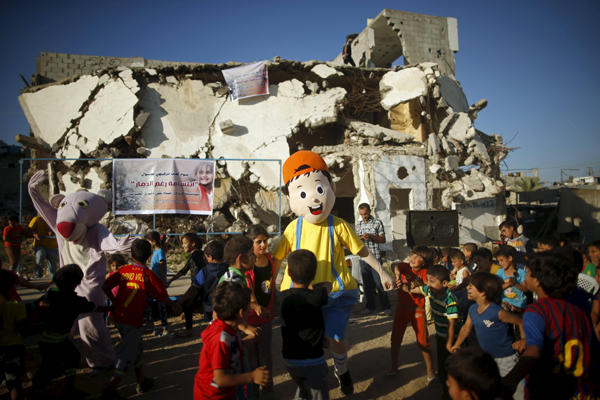UN official says 'root causes' of Gaza crisis remain unresolved
(Xinhua) Updated: 2015-07-09 11:01
Meanwhile, Gaza today has the highest unemployment in the world, with more than 60 percent of young people not working. Moreover, food insecurity affects 73 percent of the population. An estimated 80 percent of the population relies on humanitarian aid, mainly food assistance.
Electricity is available only eight to 12 hours a day, affecting water supply which covers a fraction of daily needs. Up to 90 million liters of partially-treated sewage are being discharged into the Mediterranean Sea every day due to electricity and fuel shortages. Finally, maternal mortality rates are estimated to have nearly doubled in the last 12 months.
The hostilities also wrought widespread structural devastation across the Strip. Some 100,000 people remain internally displaced as a result, hosted in temporary accommodation or make-shift shelters. Close to 120,000 people are still waiting to be reconnected to the city water supply. Work is yet to begin on a number of key health facilities.
Krahenbuhl lamented the halting reconstruction of Gaza's homes, noting that 315 days on from the ceasefire, "not a single totally destroyed house, of which there are over 12,000, has been rebuilt. "
"Resolute political action is required on a number of fronts to achieve the necessary change of paradigm in the Strip, starting with a lifting of the blockade, ensuring rights and security for all, allowing increased exports from Gaza to stimulate economic recovery and freedom of movement for civilians," he said. "While some steps have been taken in recent weeks, they fall far short of what is needed to bring about fundamental change in the lives of the population."
- Gaza father recalls summer of despair
- Gaza militants fire rocket at southern Israel
- UN chief condemns rocket attacks on Israel from Gaza
- Israeli war jets strike Gaza in response to rockets' firing
- 2,000 couples attend largest mass wedding in Gaza
- Heat wave hits Gaza City
- Israeli warplanes strike Gaza in response to rocket attack







